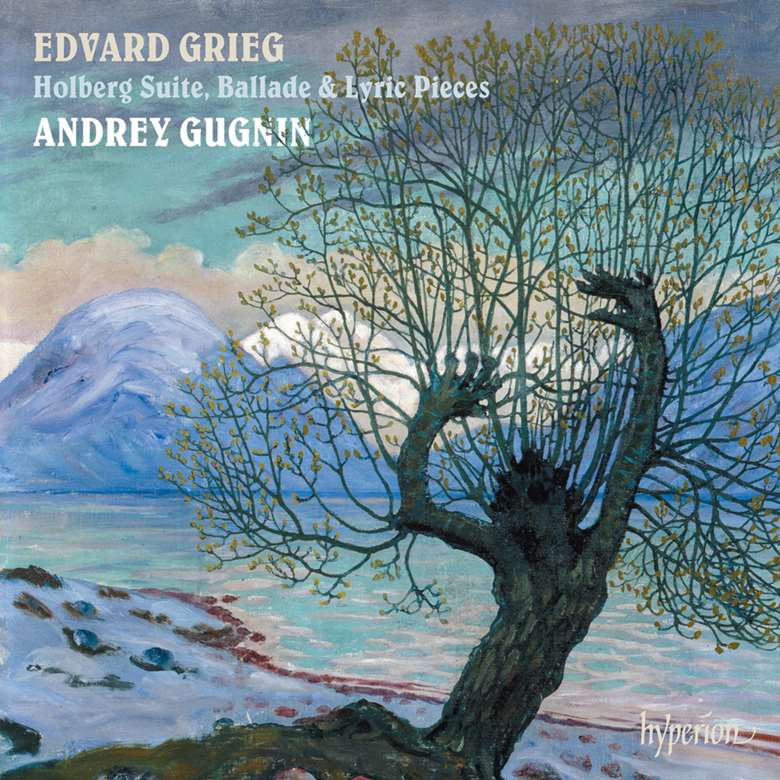Review - Grieg: Holberg Suite, Ballade & Lyric Pieces (Andrey Gugnin)
Bryce Morrison
Friday, May 24, 2024
‘Andrey Gugnin is a true poet of the keyboard and his commitment shines through in every bar’

Only a puritan could fail to be moved by Grieg’s simplicity and indelibly nationalist voice. Or by a composer who easily retreated from harsh reality into an inner landscape of dreams, invariably when exiled, however briefly, from his beloved Norway. His detractors have been many, including Debussy (his sarcastic reduction, ‘a pink bonbon stuffed with snow’) and reputedly Alfred Brendel (‘music for chambermaids’; did he really say that?). More to the point is Emil Gilels’s confession that late in his career he discovered in Grieg ‘a whole new world of intimate feeling’, a quality unforgettably captured on his DG recording. And it is this devotional quality that is continued by Andrey Gugnin.
Gugnin’s velocity in the Holberg Suite’s opening Prelude is complemented by ample time for colour and inflection, while in the Andante religioso, the nodal and expressive centre of the suite, there is a glowing response to the near-Franckian chromaticism and harmonic richness. Here, in particular, there is a reminder that for the finest Russian pianists there is no division between vocal and instrumental writing. From Gugnin the ‘singing’ lines of this haunting Aria are made unforgettable.
Then there is the problematic Ballade, problematic because together with the E minor Sonata it is one of only two large-scale works Grieg wrote for solo piano. A qualified success from a composer who was a born miniaturist, the Ballade, in the form of a set of variations, is heavy and despondent, its Nordic gloom never entirely erased in the triumphant coda. Gugnin varies the colour, the light and shade, with seemingly endless variety, yet even he cannot dispel entirely an over-burdened work. This leaves us with two books from the Lyric Pieces, as much a confessional diary as, say, Chopin’s mazurkas. Gugnin’s playing is of a rare delicacy and finesse in ‘Sylph’ from Book 7, lightly tripping in ‘French Serenade’, and his concluding ‘To Spring’ evokes a magical reawakening after ‘the long, long winter night’ (the title of an album by Leif Ove Andsnes).
Mention of Andsnes reminds me of his own highly acclaimed Grieg, and his astonishment at a short selection of the Lyric Pieces by Eileen Joyce, reissued by Decca. No pianist had ever given us a more delectably light-fingered ‘Butterfly’ or ‘Brooklet’, nor a ‘Solitary Traveller’ with a more poignant awareness of Grieg’s ever-present melancholy. Richard Farrell’s recording of the Ballade, reissued by Atoll Records, is also worth seeking out, and there is a fine complete cycle from Eva Knardahl on BIS. But Andrey Gugnin is a true poet of the keyboard and his commitment shines through in every bar.
Grieg Ballade in the Form of Variations on a Norwegian Melody, Op 24. Holberg Suite, Op 40. Lyric Pieces – Book 3, Op 43; Book 7, Op 62
Andrey Gugnin pf
Hyperion CDA68424
This review originally appeared in the Summer 2024 issue of International Piano. Never miss an issue – subscribe today







